Coronavirus: Significant minority find lockdown 'extremely difficult', poll suggests
- Published
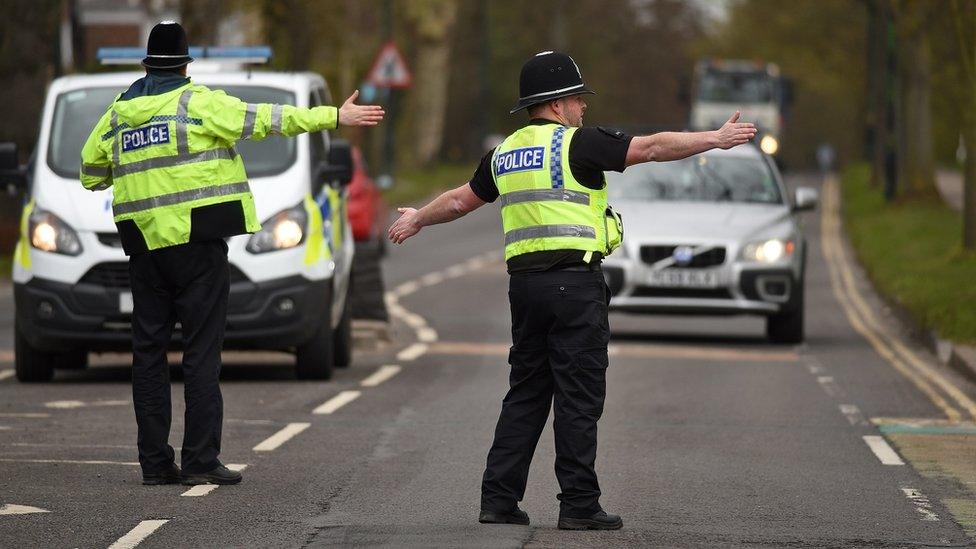
Police have been enforcing restrictions on non-essential travel
After almost three weeks of life in lockdown, a survey suggests a significant minority of people in the UK are finding it "extremely difficult" to cope.
The research, conducted by King's College London and pollsters Ipsos Mori, finds 15% of the population already say they are finding the restrictions very challenging and another 14% expect they will be unable to cope within the next month.
However, nine out of 10 people support the lockdown and have been attempting to follow the government's guidelines on social distancing and handwashing.
The survey of 2,250 adults was conducted a week ago and reveals the hardship and suffering already being experienced by some households.

A SIMPLE GUIDE: How do I protect myself?
AVOIDING CONTACT: The rules on self-isolation and exercise
LOOK-UP TOOL: Check cases in your area

Half of those surveyed (49%) said they had felt more anxious and depressed than normal. Over a third (38%) said they were having trouble sleeping and more than a fifth of people (22%) said they were already facing significant money problems or were almost certain to do so in the near future.
Among workers, 16% said they had either already lost their job or were very likely to do so in the near future.
Younger people appear to be struggling to cope with the restrictions more than older people. Among 16-24-year-olds, a quarter (24%) said they were finding it extremely difficult to cope with the lockdown. Only 11% of those aged 45 to 75 said they were struggling.
The emotional challenges of being cooped up behind closed doors are revealed in the survey. A fifth of people (19%) said they had argued more with people in their home and a similar proportion said they were drinking more alcohol that normal. A third said they were eating more food or less healthily than previously.
Whatever the challenges, the lockdown appears to have inspired a wave of community spirit. A majority of people (60%) said they had offered to help a neighbour and 47% had received assistance from the local community.
Britain seems prepared for the restrictions to last some time with 41% of adults surveyed expecting the lockdown to last for at least another six months. Half the population (51%) thought it would be more than a year before life returns to normal.
The public, though, seems supportive of the restrictions to protect the health service and prevent the virus spreading. Only 5% of people said they opposed the lockdown with two-thirds of the population (68%) strongly supporting the "stay at home" instruction.
A majority of people (60%) say they have "completely followed" the government guidelines on leaving the house as little as possible with another 27% saying they have complied nearly all the time. Only 1% admit to ignoring the advice.
Messages on staying 2m (6ft) apart from people outside the home, avoiding places where people gather and washing hands for at least 20 seconds appear to have been effective. Nine in 10 people say they have followed the official guidance.
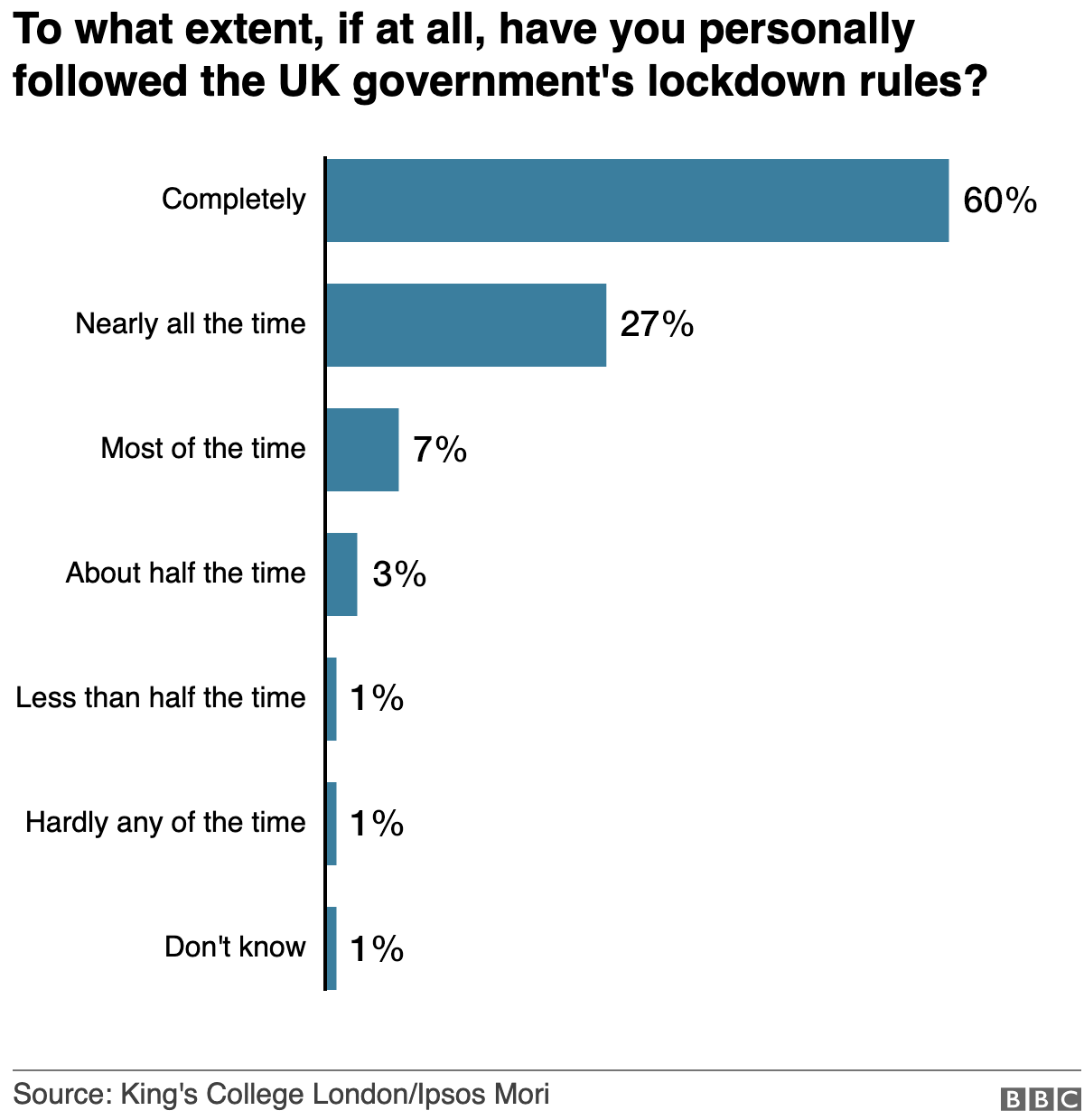
The almost total support for and compliance with the restrictions suggested in the survey will be a relief to government ministers. With the expectation that the lockdown will continue for some time yet, it is important for public order that people generally believe the measures are being followed by others.
It also appears the key messages are being understood by the public, although the survey does find a few misconceptions persist. One in seven people (15%) thought seasonal flu was deadlier than coronavirus and almost a third (31%) believed "most people" in the UK had already had the virus without realising it.
A quarter (25%) believed the conspiracy theory that coronavirus was "probably created in a lab" - one of several conspiracy theories currently circulating on social media platforms such as Facebook and YouTube.
Surveys like this also help the government identify areas where their messaging is not as clear as it needs to be. One finding that may give officials cause for concern is that two in five (39%) think they should be shopping "little and often to avoid long queues", when the advice is only to go out to shop for basic necessities and as infrequently as possible.
Only 12% of people agreed that "too much fuss" was being made about Covid-19. During the swine flu epidemic in 2009, 55% of people thought the response to that virus was over the top.
The survey also asked people about the government's handling of the crisis. While 58% of people thought ministers had adapted well to changing scientific and other information, 42% thought the response had been confused and inconsistent.
- Published9 April 2020
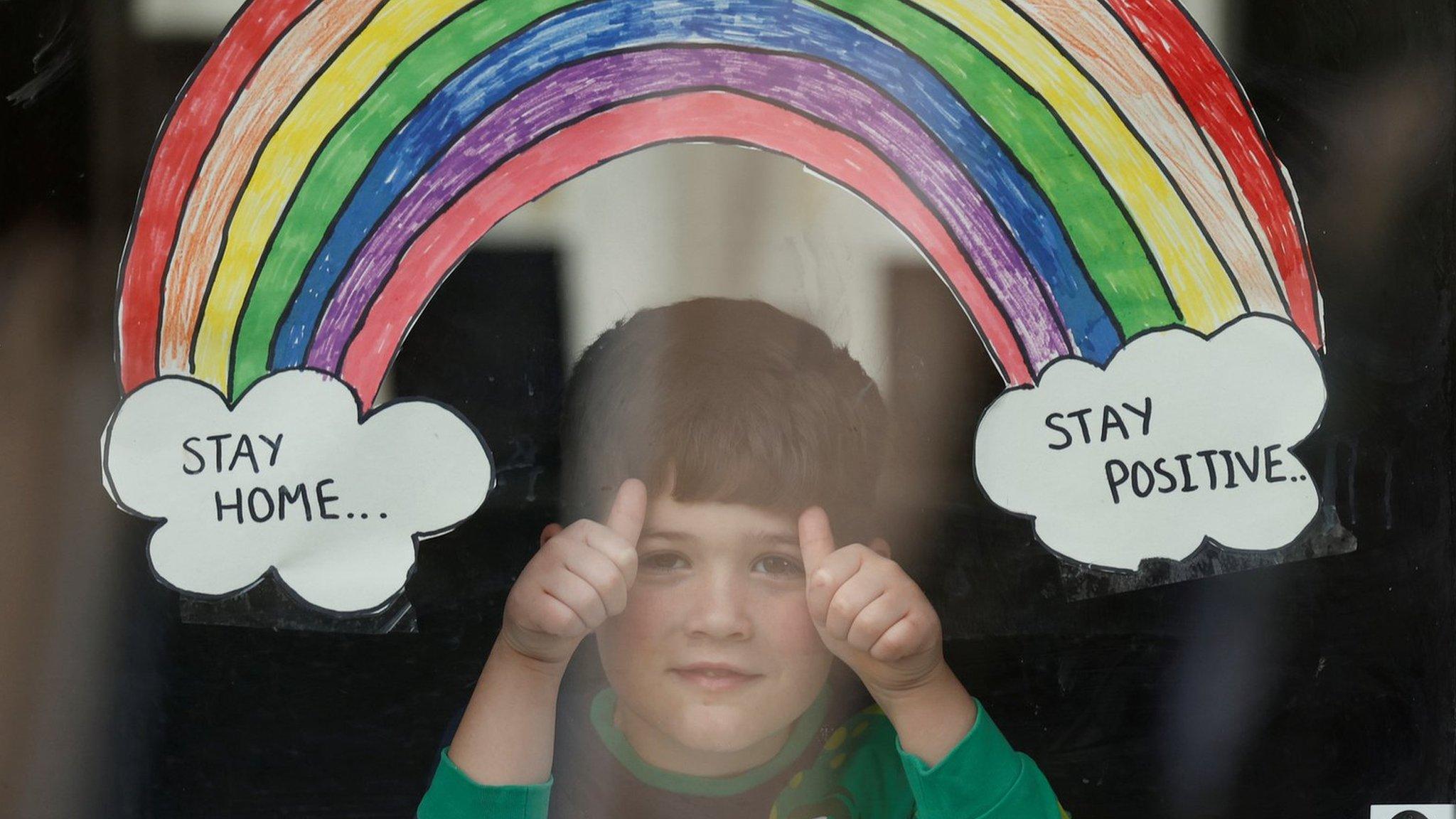
- Published25 January 2022
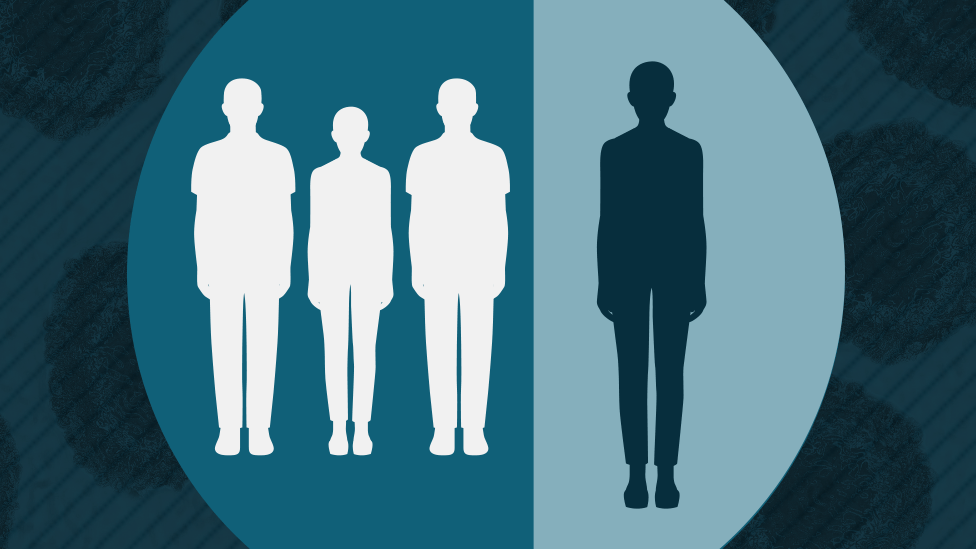
- Published6 April 2020
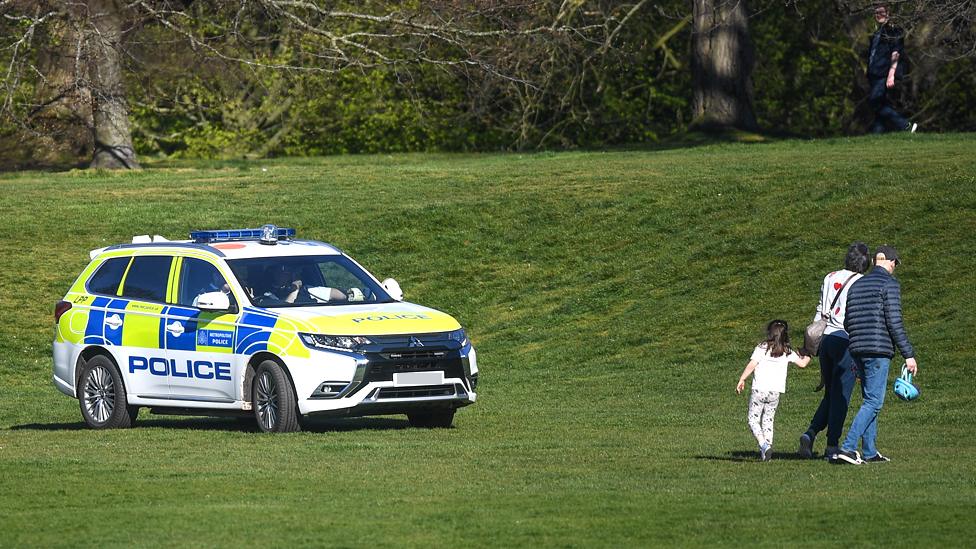
- Published7 April 2020
